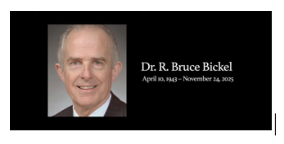September 11th Two Decades Later
- Leigh Gerstenberger

- Sep 3, 2021
- 5 min read

There are events in our lives that are so significant that they’ve made an indelible impression in our minds. People who lived through the attack on Pearl Harbor, the assassination of President Kennedy and the first men to land on the moon, will often remark that they will never forget where they were or what they were doing when that historic event occurred.
This week we approach the anniversary of one of those such events that has made an indelible impression on our psyches. The coordinated attacks on our nation that occurred on September 11, 2001, in which nearly 3,000 Americans perished in the World Trade Center, the Pentagon and in a field near Shanksville, PA.
In the 20 years since the 9/11 attacks took place, much has been written that shares stories and insights from a variety of perspectives and points of view about the events of that day. I was particularly moved when reading the following article in the Pittsburgh Post-Gazette recently in which First Lieutenant Heather “Lucky” Penney recounts her experience while serving in the Washington, D.C., Air National Guard on September 11, 2001.
Heroism is ordinary: Fighter pilot recounts her 9/11 experience
by Zoe Stratos
Pittsburgh Post-Gazette
August 8, 2021
On a bright September morning in 2001, Heather “Lucky” Penney was sent on a suicide mission.
Two airliners had crashed into the World Trade Center; another had buried itself deep into the Pentagon; a fourth was missing somewhere over Pennsylvania. Ms. Penney, at the time a jet fighter pilot in the Washington, D.C. Air National Guard, watched along with fellow Guard members as the chaos unfolded.
As confusion spread, her commanding officer, Col. Marc "Sass" Sasseville, locked eyes with her and said, “Lucky, you’re with me.”
They scrambled to the pre-flight area, zipping up their flight suits. There was no time to arm their F-16 fighter jets to track down United Airlines Flight 93. She realized what could be her fate: “Sass looks at me and says, ‘I’ll ram the cockpit.’ I knew that I would take the tail,” she said.
Ms. Penney told her story Saturday to a rapt audience at the Heinz History Center as a part of the Military Community Support Project and Veterans Breakfast Club.
Sept. 11, 2001, started off like any normal day for Ms. Penney as she drove to work at Andrews Air Force Base in Maryland, a few miles southeast of Washington.
“I could tell it’d be a gorgeous flying day, but I wasn’t going to be flying that morning. I had called the tape the night before — we had an answering machine that had the next day’s flying schedule on it — and I wasn’t.” Instead, Ms. Penney had a day of meetings and paperwork to deal with. Ms. Penney grew up in a military family — her father, John Penney, was an Air Force colonel who served from 1970 to 1979 and then was a pilot for United Airlines.
Throughout her childhood, she would listen to her father’s stories when squadron buddies visited for dinner. She was struck by how “cool” fighter jets and their pilots were. But there was a problem: At the time, women could not be fighter pilots.
She studied English at Purdue University and planned to move on to graduate school to become a professor. But In 1993, Congress opened combat aviation to women, and Ms. Penney joined the Air Force in 1996.
As one of the first in a wave of women to become fighter pilots, she was given the nickname “Lucky,” and was assigned to the 121st Fighter Squadron of the District of Columbia Air National Guard.
On that Sept. 11 morning, Ms. Penney and other Guard members were discussing daily and weekly operations for the fighter squadron when there was a knock on the door and the announcement, “An aircraft flew into the World Trade Center.”
She said they looked at each other and thought that maybe an errant pilot in a small plane had hit the tower. Then the door flew open — there was no knock: “A second aircraft flew into the second World Trade Center. It was on purpose,” they were told. Ms. Penney and the rest of the crew found a TV to watch what the rest of the world was seeing: an attack on the nation. They stood silently, watching replays of the strikes and the explosions, not knowing whether the madness was over.
“We know we have to get airborne. We know we have to protect. I was so eager, so impatient, and yet so frustrated and angry, because we couldn’t. As I said, we’re with the D.C. Guard. We’re not part of our nation’s alert squadron.”
Without an order from President George W. Bush, who was visiting a school in Florida, the Guard pilots could not take action. And there was another problem, she said: Their planes were not armed.
But after the Pentagon was hit, Vice President Dick Cheney gave the Air National Guard at Andrews Air Force Base the go-ahead to search for Flight 93. The Boeing 757 was headed to San Francisco from Newark, N.J., when it reversed course over Ohio and headed toward Washington. Ms. Penney and Mr. Sasseville ran to their F-16s.
According to their training, the pilots were supposed to go through pre-flight checks. But there was no time for anything but ground crew checks of the exterior of their planes.
Her crew chief cleared her for launch, telling her “Godspeed.” Mr. Sasseville was already in the air.
Flying northwest, she could see smoke coming from the Pentagon. They continued to search, but she and Mr. Sasseville never found Flight 93. They learned later that it had been hijacked by four al-Qaeda terrorists before it crashed into a field in Somerset County, Pa. The 44 people onboard perished.
The two pilots spent much of the rest of the day patrolling the skies to make sure no other hijacked planes were headed toward Washington. Later, they calculated the timelines and determined that they never could have intercepted Flight 93. “The passengers on Flight 93 are the true heroes. In the years since that bright, blue morning, I’ve come to realize that heroism isn’t something unique or possessed by only a chosen few,” she said.
She pointed out the irony that she had taken the military oath to protect and defend the country, but the ordinary, everyday people on Flight 93 were the ones who thwarted the attack on the nation’s capital.
“I still get really frustrated with the failures of the command and control and all of that” on 9/11, she said, “but what I now see that gives me tremendous hope is that they were willing to do what was unimaginable, and what they had not had time to think of. When you take that oath of office, when you choose and enter the military, you use that time to sort of meditate on what that might require. And they had to make that decision.”
Now, 20 years later, Ms. Penney, 46, said she touts the ideals of bravery, service and belonging to every individual — including her two daughters. She used those three words — bravery, service and belonging — many times during her address Saturday, saying they perfectly describe the actions of the Flight 93 passengers.
Ms. Penney served two combat tours in Iraq and left the military last year. Today she is a defense policy analyst and a senior fellow at the Mitchell Institute for Aerospace Studies, a think tank in Washington. But she still flies.



Comments